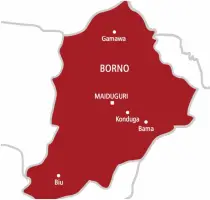Former Kaduna Central Senator, Shehu Sani, has issued a stark warning that Nigeria risks losing its nursing professionals to foreign countries if the government fails to address the demands behind the ongoing strike by nurses and midwives.
The National Association of Nigeria Nurses and Midwives – Federal Health Institutions Sector (NANNM-FHI) commenced a seven-day warning strike on Wednesday despite appeals from the Federal Government for dialogue.
Sani, expressing concern over the situation, revealed that some nurses have resorted to selling refreshments in hospitals to supplement their income.
"The strike by the nurses and midwives is unfortunate. They should be listened to and their possible demands should be met, so that we don't lose them to Europe, Canada, America or the Middle East," Sani stated in a post on X.
"Some nurses nowadays have to sell doughnuts and soft drinks to hospital visitors in order to make ends meet," he added, highlighting the economic challenges facing healthcare workers.
Background of the Strike Action
The industrial action follows the expiration of a 15-day ultimatum issued by NANNM-FHI on July 14, 2025. The union is demanding improved welfare packages, fair allowances, and better working conditions for nurses across federal health institutions nationwide.
Morakinyo Rilwan, National Chairman of the union, explained that the decision to proceed with the strike came after the Federal Government failed to engage meaningfully with the association during the window provided by the ultimatum.
The warning strike is expected to significantly impact healthcare delivery across federal health institutions, potentially affecting thousands of patients seeking medical attention.
Healthcare Brain Drain Concerns
Sani's warning highlights a growing concern about Nigeria's healthcare brain drain, with medical professionals increasingly seeking opportunities abroad due to better remuneration and working conditions.
Countries like the United Kingdom, United States, Canada, and Saudi Arabia have become popular destinations for Nigerian healthcare workers, creating staffing shortages in local hospitals and clinics.
The situation has raised concerns about the future of Nigeria's healthcare system, particularly as the country continues to face various public health challenges that require a robust medical workforce.
As the strike enters its initial days, stakeholders are calling on the government to prioritize negotiations with the nurses' union to prevent further deterioration of healthcare services and stem the potential exodus of these essential workers.
Stay updated on this developing story by following BenriNews on our social media channels: Facebook, Twitter, LinkedIn, WhatsApp, and Telegram.













